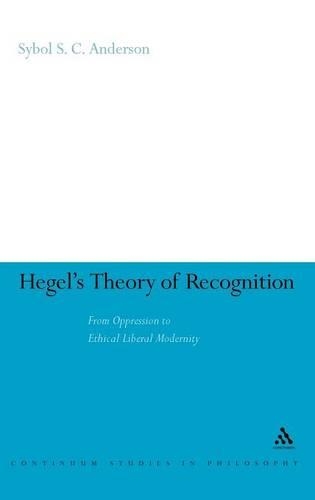
Hegel's Theory of Recognition: From Oppression to Ethical Liberal Modernity
(Hardback)
Available Formats
Publishing Details
Hegel's Theory of Recognition: From Oppression to Ethical Liberal Modernity
By (Author) Dr Sybol S.C. Anderson
Bloomsbury Publishing PLC
Continuum International Publishing Group Ltd.
1st June 2009
United Kingdom
Classifications
Tertiary Education
Non Fiction
Social and political philosophy
323.101
Physical Properties
Hardback
224
Width 156mm, Height 234mm
Description
Since the 1960s 'New Left' emancipatory movements have claimed that women, ethnic minorities, gays and lesbians, and other groups are oppressed. Some liberal theorists have treated their demands for equality as matters of toleration, of securing by law the equal treatment of cultures and conceptions of the good. However, much more is involved. Also at stake are conceptions of identity differences that inform social practices and perpetuate inequalities that are beyond the reach of legislation. This book outlines an alternative approach to a liberal politics of difference. Sybol Anderson begins by constructing a definition of oppression that illuminates, from a liberal perspective, its salient features. Exposing the limits of toleration as a response, Anderson reaches beyond it for a viable concept of recognition. Hegel's theory of recognition proves an indispensable resource in this endeavor. Anderson concludes, contrary to recent critics of Hegelian recognition, that Hegel's theory can successfully guide modern liberal states toward the achievement of social equality.
Author Bio
Sybol Anderson is Assistant Professor of Philosophy at St. Mary's College of Maryland, USA.
